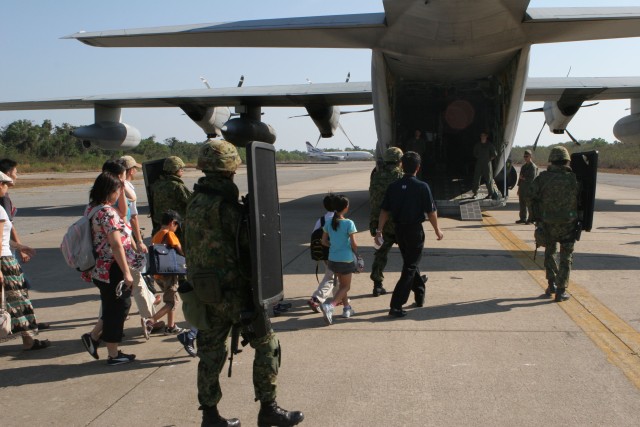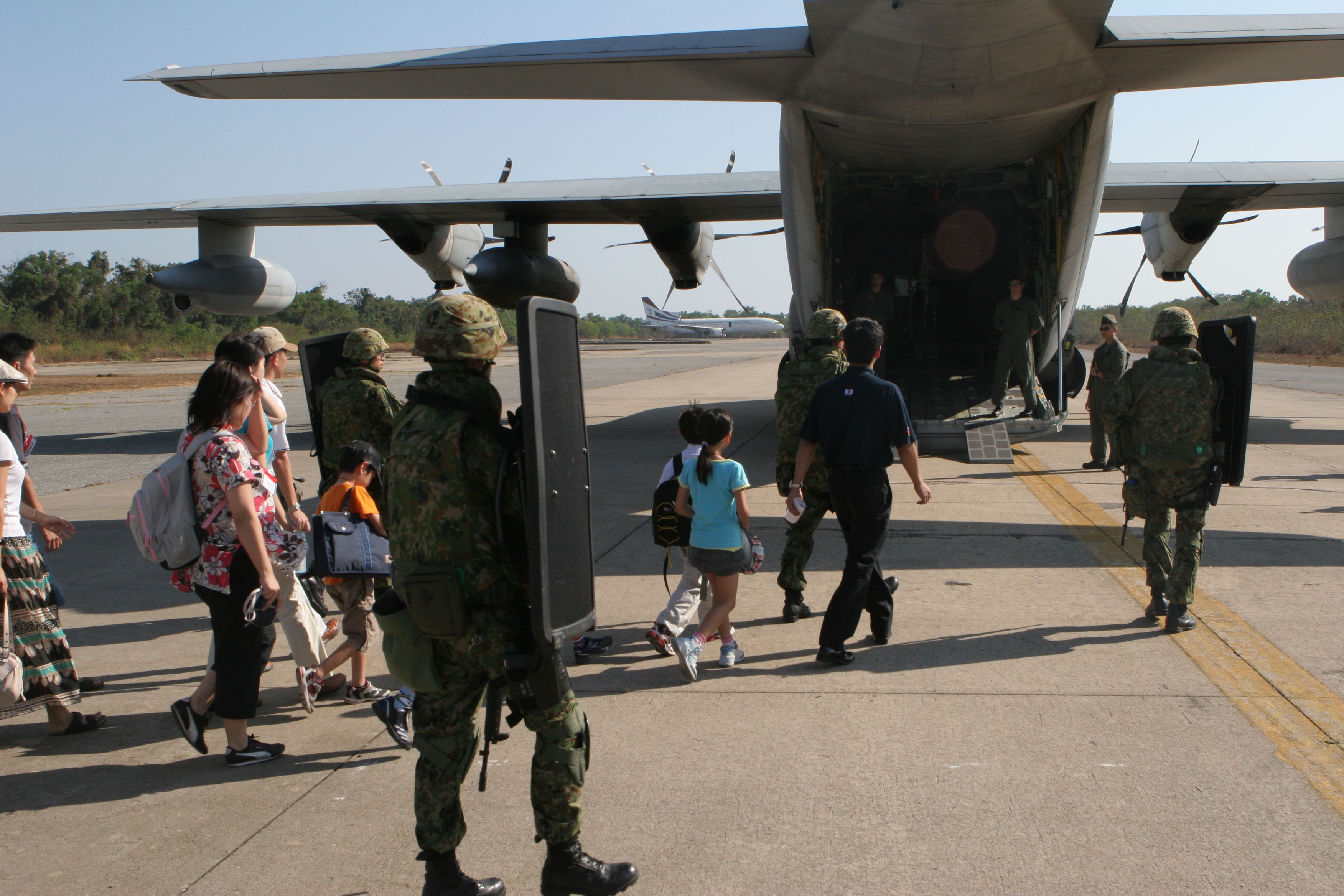
UTAPHAO, Thailand- Japanese Self Defense Force and Thai, Indonesian and U.S. militaries conducted a multinational noncombatant evacuation operation (NEO) exercise here Feb. 15, successfully "evacuating" more than 90 people, during Cobra Gold 2009. Cobra Gold is an annual joint, coalition multinational exercise focused on maintaining and improving military interoperability among its participants. Nearly 200 service members from the militaries of four nations teamed up over the course of five days to prepare for the exercise, which was based on evacuating citizens from a region of rising political turmoil in the exercise scenario. The troops received classroom instruction and progressed to practical application rehearsals before the final exercise, working to understand the different operating procedures utilized by each nation. "It\'s challenging to work together with other nations because each nation has their own way of doing things," said Capt. Thano Pravongviengkham, a company commander with Combat Logistics Regiment 3 who directed this particular exercise. The exercise was primarily based around planning and running an evacuation control center (ECC), which supports a NEO by facilitating the evacuation of numerous civilians in an organized and timely manner. "Coordinating just by ourselves is hard; add a few more countries to that and things can get interesting," said Pravongviengkham, explaining difficulties such as differing languages and standard operating procedures. The exercise started as buses loaded with about 90 role players drove up at the airfield. The role players were then unloaded and separated by nationality- Thai, Japanese and American- in order to make the processing smoother by eliminating language barriers. The Indonesian military also participated in the event by offering perimeter security at the airfield. "I think this is very important for Indonesia's military to be cooperating in this exercise because it gives us a chance to work together, gain knowledge, skill and experience so that we can teach our soldiers back home," said Indonesian Marine 2nd Lt. Helilintar Laksono with 5th Battalion, Surabaya. After splitting into smaller groups, military representatives from each of the countries explained the process to the evacuees and moved them through a series of checkpoints, ranging from security to registration for debarkation. "If we had to do this thing for real, this would be a great exercise to prepare us," said Staff Sgt. Payton Bradshaw a landing support specialist. The Tactical Exercise Control Group from III Marine Expeditionary Force contributes to exercises such as this in order to do that very thing-make the training realistic. "We help facilitate exercises such as this by developing realistic scenarios to make the experience more beneficial for the units conducting the training," said Capt. John Menzel, TECG air officer. "We can adjust the scenario to meet the unit's training objectives," he added. During this scenario, certain role players were directed to act as medical casualties in order to test the participating forces' emergency response capabilities during a chaotic environment. "Our job is to take care of people who have health problems while in the ECC," said Royal Thai Air Force Squadron Leader Suwatcharee Ngujima, a nurse at a hospital in Bangkok. "The exercise was good because it gave us a chance to study each other's procedures and learn to work together to help patients," she said. After all the evacuees were screened and registered, they were brought to the flight line to board an aircraft and evacuate to a safe zone. The exercise was considered very meaningful by all of the participating nations, a notion reflected by the twenty-eight VIPs who attended the training event, including the U.S. and Japanese ambassadors to Thailand. "The largest training take away here is the planning of a complex operation in a combined mode," said Brig. Gen. William M. Faulkner, commanding general of 3d Marine Logistics Group. "This type of training has significant value for all of the countries involved," he added. (30)

Social Sharing